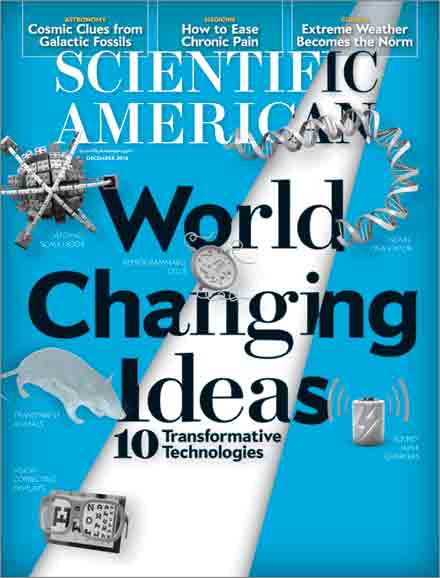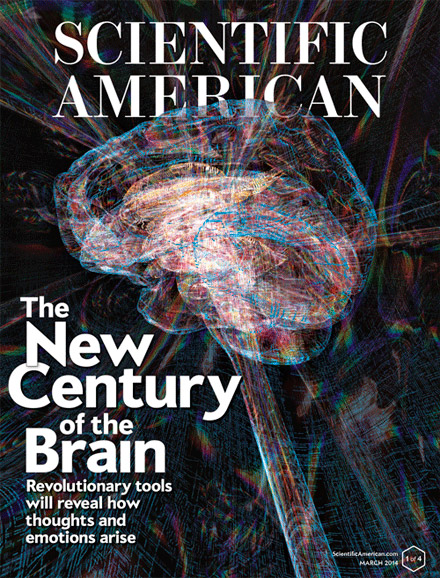Reasons to Believe is a thought-provoking documentary by filmmaker Ben Fama Jr., that explores the psychology and science of belief and why we believe, sometimes falsely, in things that may not match up with reality. Facilitated by leaders in the fields of science, philosophy, neuroscience, moral reasoning, psychology, perception, memory formation, and indoctrination, these experts answer a variety of thought provoking questions and provide tangible structure to the definition and creation of belief in the human brain. Fama asks the question: Why do we believe?
Starring: Michael Shermer, Peter Boghossian, Jennifer Whitson, Caleb Lack and Chad Woodruff. Official website
Comments Off on Michael Shermer in Reasons to Believe
Why worldview threats undermine evidence
Have you ever noticed that when you present people with facts that are contrary to their deepest held beliefs they always change their minds? Me neither. In fact, people seem to double down on their beliefs in the teeth of overwhelming evidence against them. The reason is related to the worldview perceived to be under threat by the conflicting data.
Creationists, for example, dispute the evidence for evolution in fossils and DNA because they are concerned about secular forces encroaching on religious faith. Anti-vaxxers distrust big pharma and think that money corrupts medicine, which leads them to believe that vaccines cause autism despite the inconvenient truth that the one and only study claiming such a link was retracted and its lead author accused of fraud. The 9/11 truthers focus on minutiae like the melting point of steel in the World Trade Center buildings that caused their collapse because they think the government lies and conducts “false flag” operations to create a New World Order. Climate deniers study tree rings, ice cores and the PPM of greenhouse gases because they are passionate about freedom, especially that of markets and industries to operate unencumbered by restrictive government regulations. Obama birthers desperately dissected the president’s long-form birth certificate in search of fraud because they believe that the nation’s first African- American president is a socialist bent on destroying the country.
In these examples, proponents’ deepest held worldviews were perceived to be threatened by skeptics, making facts the enemy to be slayed. This power of belief over evidence is the result of two factors: cognitive dissonance and the backfire effect. In the classic 1956 book When Prophecy Fails, psychologist Leon Festinger and his co-authors described what happened to a UFO cult when the mother ship failed to arrive at the appointed time. Instead of admitting error, “members of the group sought frantically to convince the world of their beliefs,” and they made “a series of desperate attempts to erase their rankling dissonance by making prediction after prediction in the hope that one would come true.” Festinger called this cognitive dissonance, or the uncomfortable tension that comes from holding two conflicting thoughts simultaneously. Two social psychologists, Carol Tavris and Elliot Aronson (a former student of Festinger), in their 2007 book Mistakes Were Made (But Not by Me) document thousands of experiments demonstrating how people spin-doctor facts to fit preconceived beliefs to reduce dissonance. Their metaphor of the “pyramid of choice” places two individuals side by side at the apex of the pyramid and shows how quickly they diverge and end up at the bottom opposite corners of the base as they each stake out a position to defend. (continue reading…)
read or write comments (42)
Who believes in conspiracy theories—and why
President Barack Obama has been a busy man while in office: he concocted a fake birth certificate to hide his true identity as a foreigner, created “death panels” to determine who would live and who would die under his health care plan, conspired to destroy religious liberty by mandating contraceptives for religious institutions, blew up the Deepwater Horizon offshore drilling rig to garner support for his environmental agenda, masterminded Syrian gas attacks as a pretext to war, orchestrated the shooting of a tsa agent to strengthen that agency’s powers, ordered the Sandy Hook school massacre to push through gun-control legislation, and built concentration camps in which to place Americans who resist.
Do people really believe such conspiracy theories? They do, and in disturbingly high numbers, according to recent empirical research collected by University of Miami political scientists Joseph E. Uscinski and Joseph M. Parent and presented in their 2014 book American Conspiracy Theories (Oxford University Press). About a third of Americans, for example, believe the “birther” conspiracy theory that Obama is a foreigner. About as many believe that 9/11 was an “inside job” by the Bush administration. (continue reading…)
read or write comments (30)
What does the magnificence of the universe
have to do with God?
After 64-year-old Diana Nyad completed her 110-mile swim from Cuba to Florida in September 2013, she was interviewed by Oprah Winfrey on her Super Soul Sunday show in what was to be a motivational reflection on the triumph of will over age. When Nyad announced, “I’m an atheist,” Oprah responded quizzically: “But you’re in the awe.” Puzzled, Nyad responded: “I don’t understand why anybody would find a contradiction in that. I can stand at the beach’s edge with the most devout Christian, Jew, Buddhist—go on down the line—and weep with the beauty of this universe and be moved by all of humanity. All the billions of people who have lived before us, who have loved and hurt and suffered. So to me, my definition of God is humanity and is the love of humanity.” What Oprah said next inflamed atheists: “Well, I don’t call you an atheist then. I think if you believe in the awe and the wonder and the mystery, then that is what God is.”
This is the soft bigotry of those who cannot conceive of how someone can be in awe without believing in supernatural sources of wonder. Why would anyone think that? (continue reading…)
read or write comments (5)
The decline of religion and the rise of the “nones”
Since the early 20th century, with the rise of mass secular education and the diffusion of scientific knowledge through popular media, predictions of the deity’s demise have fallen short, and in some cases—such as in that of the U.S.—religiosity has actually increased. This ratio is changing. According to a 2013 survey of 14,000 people in 13 nations (Germany, France, Sweden, Spain, Switzerland, Turkey, Israel, Canada, Brazil, India, South Korea, the U.K. and the U.S.) that was conducted by the German Bertelsmann Foundation for its Religion Monitor, there is both widespread approval for the separation of church and state, as well as a decline in religiosity over time and across generations.
In response to the statements “Only politicians who believe in God are suitable for public office” and “Leading religious figures should exercise an influence on government decisions,” even in über-religious America only 25 percent agreed with the former and 28 percent with the latter. All other countries reported lower figures (with Spain at or near the bottom at 8 and 13 percent and Germany in the middle at 10 and 21 percent, respectively). Moreover, most of the countries in the survey showed a declining trend in religiosity, especially among the youth. In Spain, for example, 85 percent of respondents older than 45 reported being moderately to very religious, but only 58 percent of those younger than 29 said they were. In Europe in general, only 30 to 50 percent said that religion is important in their own lives. (continue reading…)
read or write comments (15)





